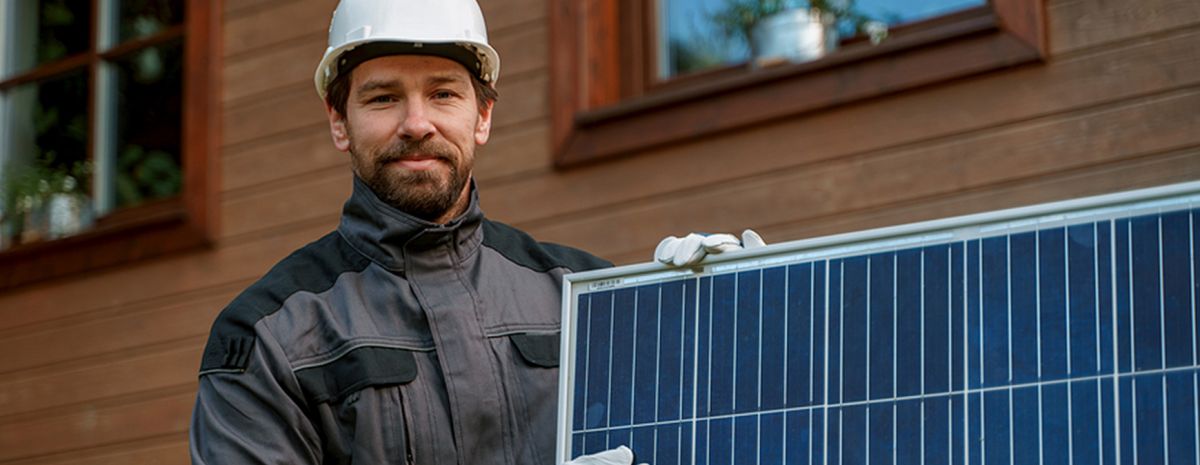
Considering a career change at 30?
Maybe you’ve lost interest in your current work.
Maybe you’re struggling to move upward.
Maybe you’re just ready for something new.
Regardless of the motivation, switching jobs can be tough. It requires a lot of effort and determination.
Get Started on the Path to a New Career
Fill out our form to learn how we can help you change your life.
If you’re wondering “what career can I start at 30?”, you’re in the right place. The skilled trades just might be calling your name.
The benefits of learning a trade at 30.
Age isn’t a factor.
It’s not uncommon for 30-year-olds to get self-conscious about their age when considering a career change. There’s a fear that younger employees might be preferable to employers.
You don’t have to worry about anything like that in a skilled trade career because 96% of the workforce is 30 or older.
Demand is rising.
Another great motivation for learning a trade at 30 is the rising demand for skilled trade professionals.*
For decades, the US has been battling a skilled labor shortage, partially due to the older age of the workforce.2 Although these conditions could look gloomy from the outside, they translate into a wealth of job opportunities for tradespeople.
You can remain confident that there will be demand for your skills after making the career change. That’s an important factor for those worried about job stability.
Education is affordable.
Gaining new skills and expertise is crucial when switching careers at any stage of your life, especially in your 30s.
When compared to the high costs of college tuition, trade schools are a steal. On average, a four-year degree costs nearly $100,000 more than the standard trade school program.3
These programs are reasonably affordable and only take between six months and two years to complete, allowing you to enter the job market quicker.4
The work is active.
If you’ve been cooped up in an office for most of your professional life, learning a new trade at 30 is a great way to switch up your work environment!
In contrast to desk jobs, skilled trades involve a lot of physical activity. Professionals are usually standing up, walking around, and working with their hands most of the day instead of sitting at a desk. Some tradespeople even have the opportunity to work outside.5
How to learn a new trade at 30.
Explore different skilled trades.
The first step to learning a new trade at 30 is figuring out which skilled trade you want to pursue.
Generally, skilled trades are jobs requiring a specialized set of skills, expertise and abilities. These professions typically involve hands-on work.6
Here are some of the most popular skilled trades professions you could try out:
HVAC – Heating, air conditioning, and refrigeration (HVAC) technicians are responsible for installing, maintaining, and repairing heating and cooling systems in residential and commercial settings.7
Electrician – Electricians are experts in all things electrical power, including lighting, communications, and control systems. These professionals install, service, and fix these electrical systems in a variety of settings.8
Welding – Welders join and cut metal parts with highly specialized equipment for various applications. Many welders choose to supplement their skills with other disciplines to expand their abilities.9
Attend trade school.
Once you figure out a trade to pursue, the next step is becoming qualified in the field.
Trade schools are a common route for gaining the skills, experience, and knowledge needed to succeed in the trades.
Participants receive a hybrid of classroom and experiential learning in their field of choice. With so many options available, it’s important to research schools to make sure they’re reputable and legitimate.
Enter the workforce.
After learning a new trade at 30, you can start searching for a position in the field.
Creating a skilled trade resume highlighting your skills and experience can improve the job search by giving employers a clear description of your abilities.
It’s important to keep in mind that your first job in the skilled trades most likely won’t be a dream job. Take your time to find a good position, but don’t shy away from accepting a role below your expectations.
If you’re interested in learning a new trade at 30, read about how to plan for long-term success in the field.
*According to BLS data Arizona employed 7,950 Heating, Air Conditioning, and Refrigeration Mechanics and Installers (499021), 5,810 Welders (51-4121), and 14,450 Electricians (47-2111) through May 2021 http://data.bls.gov/oes.
This blog has been labeled as archived as it may no longer contain the most up-to-date data. For a list of all current blog posts, please visit our blog homepage at https://www.rsi.edu/blog/

